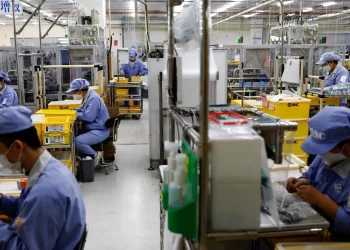The government has issued a final ultimatum to Next-Gen Infrastructure Company (NGIC) to roll out its long-delayed 5G service by the fourth quarter of 2025 or risk a review of its operating licence.
The company has already missed two previously agreed rollout deadlines—November 2024 and June 2025—raising concerns about its readiness to lead Ghana’s entry into the next era of high-speed mobile internet.
Speaking at a news conference in Accra, the Minister for Communications, Digital Technology and Innovation, Mr. Samuel Nartey George, declared that no further delays would be tolerated.
“Let me declare, we have agreed with NGIC that there will be no further extensions to this rollout deadline,” the Minister said. “If the company fails to meet the Q4 2025 deadline commitment, the ministry will immediately initiate a review and possible renegotiation of the license terms.”
Progress acknowledged, but pressure mounts
While reiterating the government’s frustration over the missed deadlines, Mr. George also acknowledged some progress made by NGIC in recent months.
According to him, the company has deployed 16 5G-ready sites and received full approval from the National Communications Authority (NCA) for its core network infrastructure.
However, the Minister emphasized that the government expects tangible results in the form of active service, not just preparation.
“With the new take-off date now set for Q4, the company is expected to deploy at least 50 live 5G sites in Accra and Kumasi within the stipulated timeframe,” he stated.
“These milestones reflect meaningful progress following earlier delays in 2024.”
5G Rollout: Strategic national priority
The rollout of 5G, or Fifth Generation Wireless Technology, is considered a major national infrastructure project.
5G promises significantly faster internet speeds, reduced latency, improved reliability, and enhanced capacity—transforming digital services in sectors such as healthcare, education, manufacturing, and financial services.
The Minister explained that Ghana’s 5G strategy represents a “deliberate policy shift” to ensure shared infrastructure, reduce duplication by multiple operators, lower the cost of data for consumers, and accelerate nationwide access to advanced wireless services.
“The national rollout model is a deliberate policy shift to reduce infrastructure duplication, lower data costs, and accelerate universal 5G access for all Ghanaians,” Mr. George noted.
Next-Gen under scrutiny
The pressure is now firmly on NGIC to deliver.
The company was selected as the sole entity to spearhead Ghana’s 5G infrastructure through a neutral, shared network model, working in partnership with mobile network operators, the government, and other stakeholders.
Though the company has taken steps toward readiness, including site deployment and regulatory approvals, the Ministry insists that Q4 2025 is non-negotiable.
Any further delay, officials say, would not only undermine public confidence but also jeopardize the country’s ambition to lead digital transformation in West Africa.
Mr. George assured Ghanaians that the Ministry remains committed to transparency, efficiency, and ensuring value for consumers throughout the implementation process.













